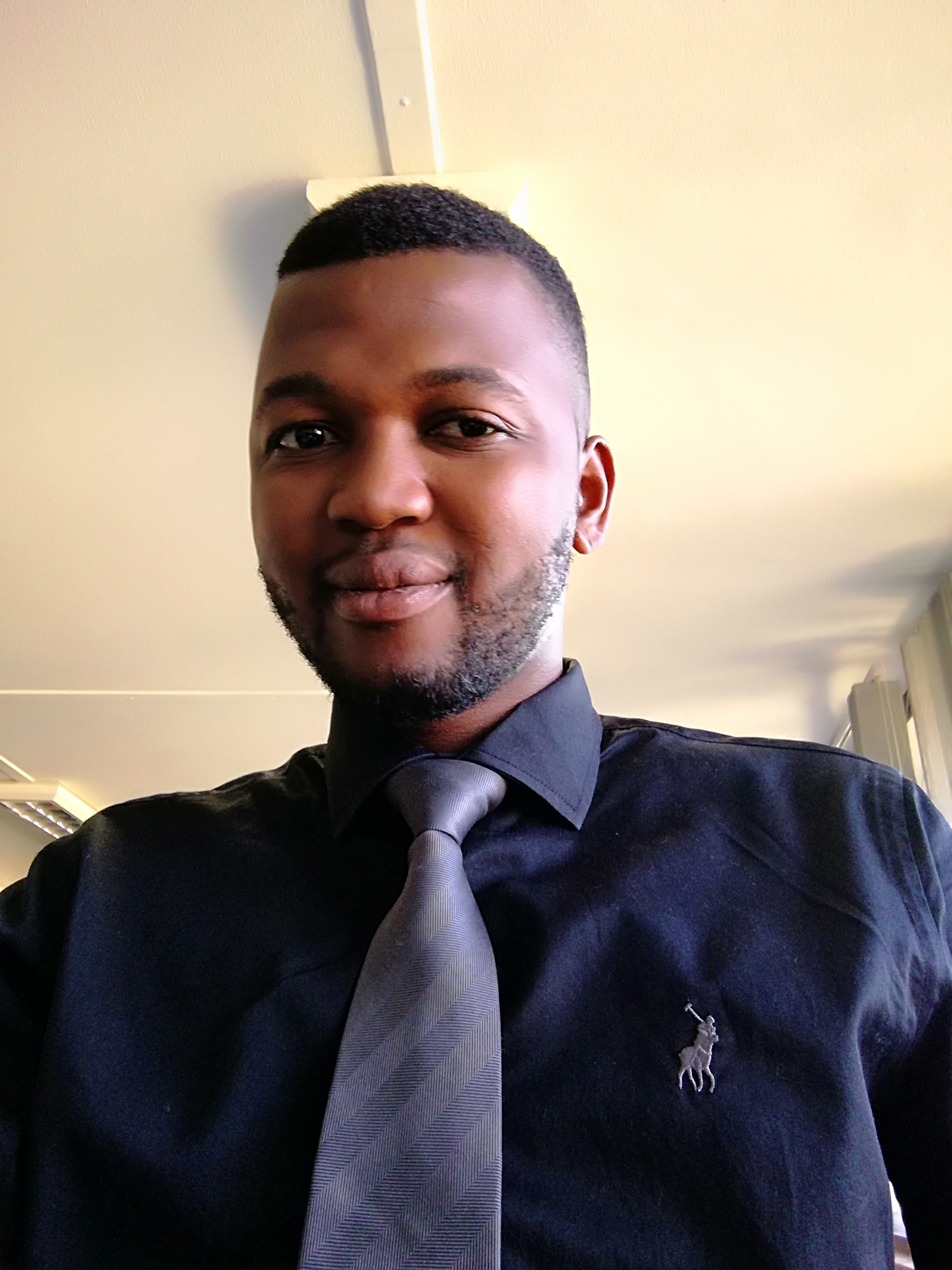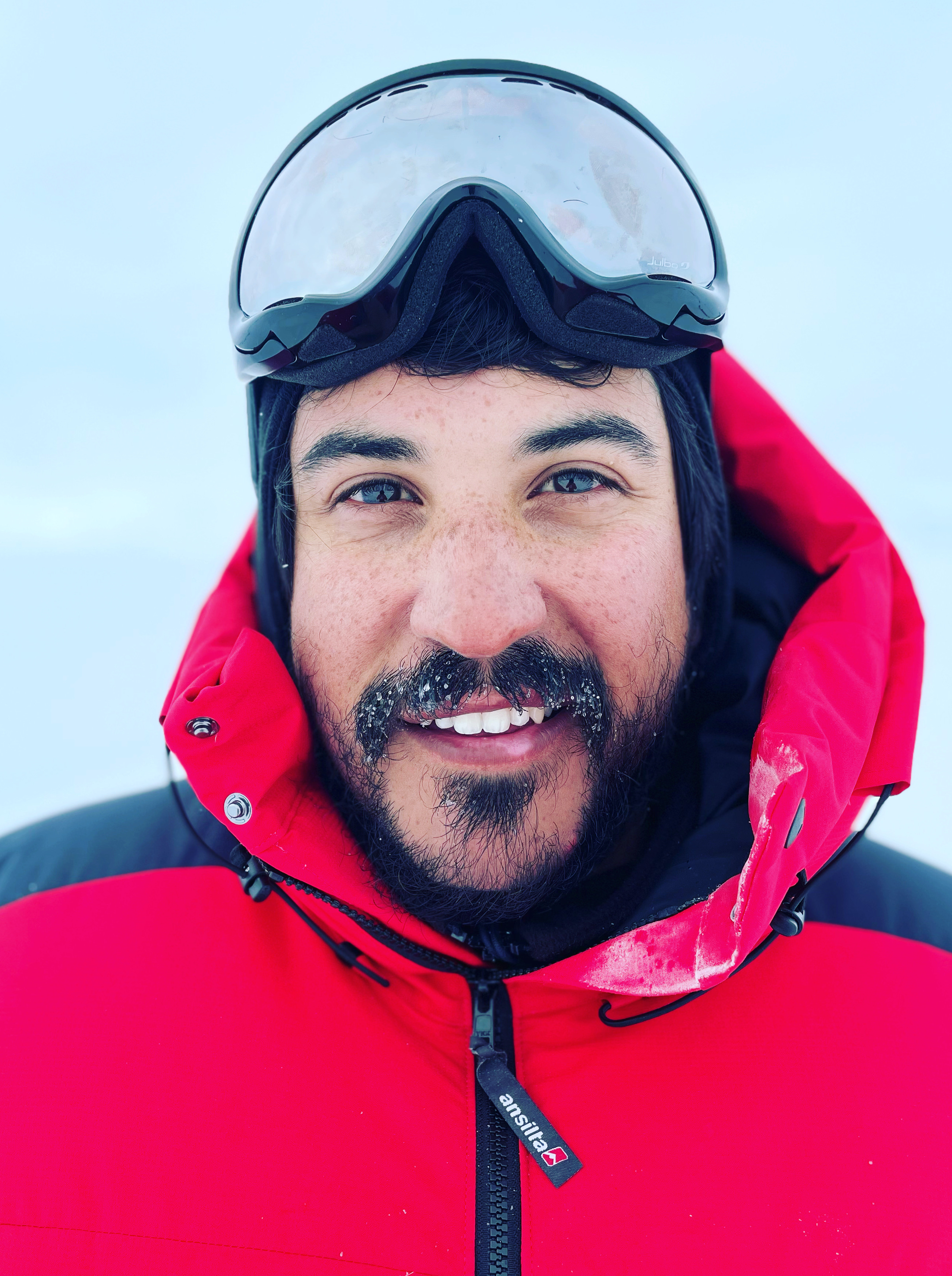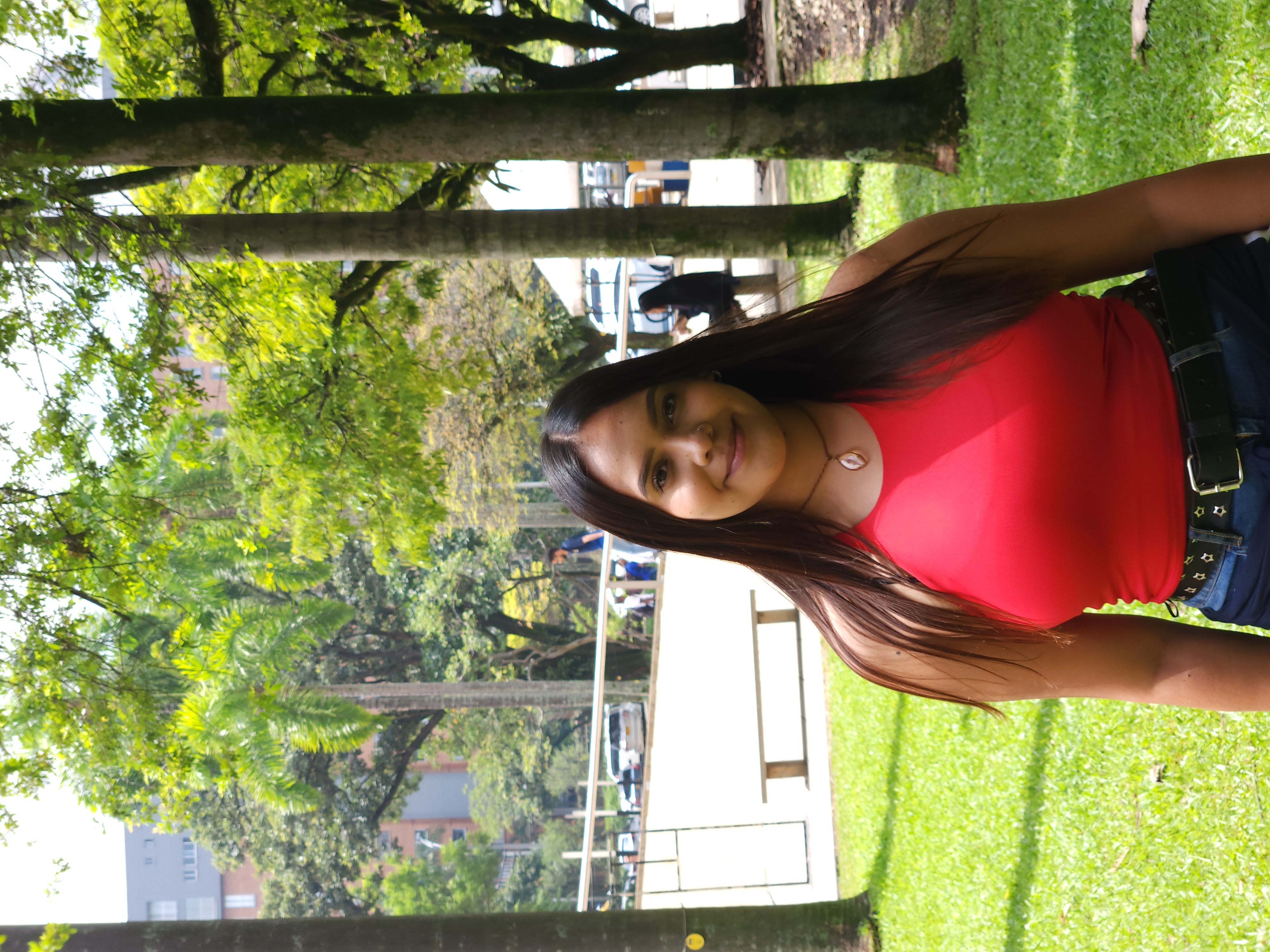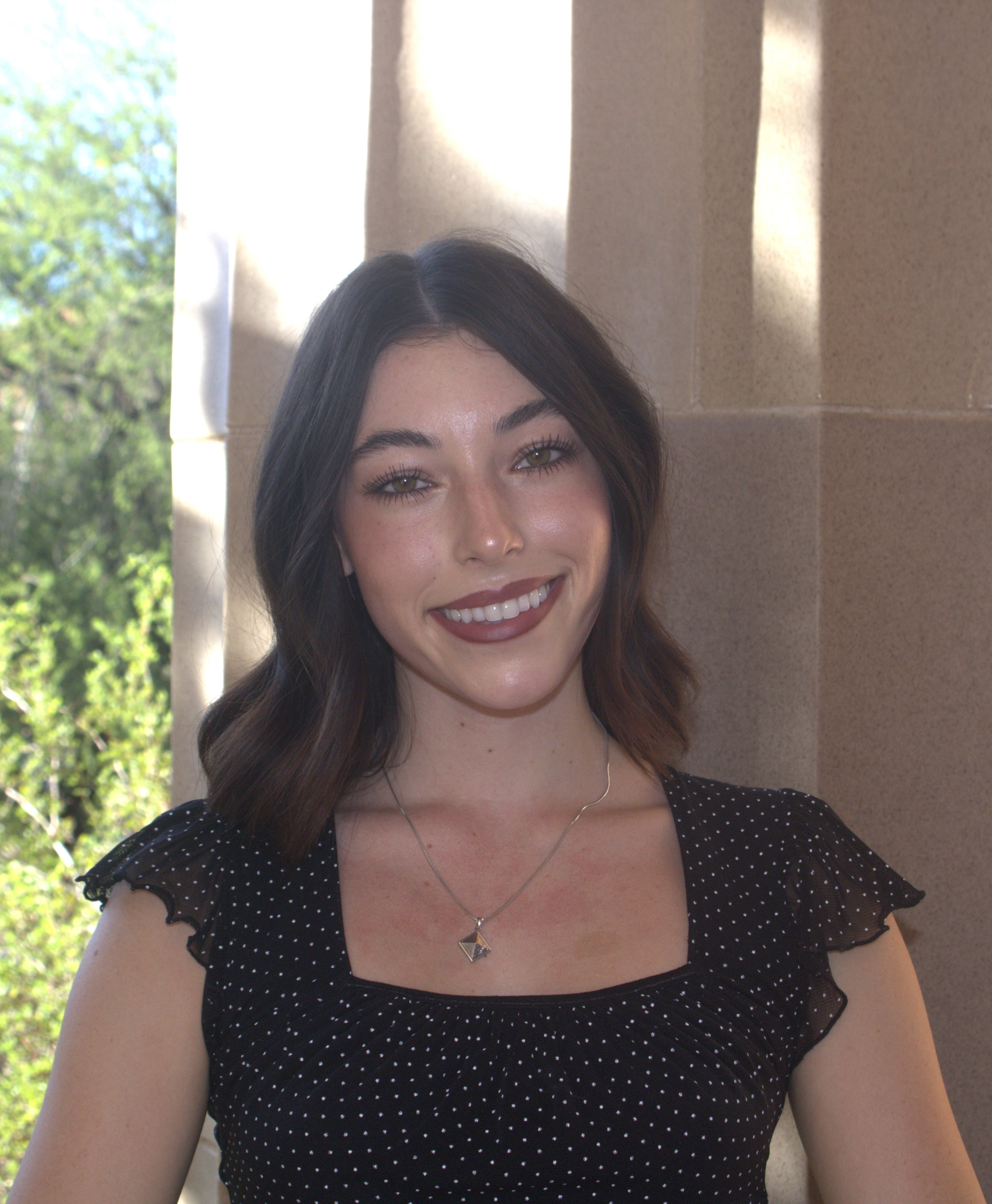
Principal Investigator - Sylvia Sullivan
Sylvia is an Assistant Professor at the University of Arizona since January 2022. She has spent time as a fellow at the Karlsruhe Institute of Technology and a postdoctoral researcher at Columbia University. She earned her doctorate from the Georgia Institute of Technology in 2017 and her bachelors from the California Institute of Technology in 2012, both in chemical engineering with concentrations on earth and environmental sciences. In her free time, she enjoys running, reading, watching movies, and learning languages.
Contact: sylvia_at_arizona.edu

Doctoral Student - Thabo Makgoale
Thabo is a fourth-year Ph.D. student in Hydrology & Atmospheric Sciences, focusing on the effect of ice microphysics within tropical mesoscale convective systems using storm-resolving simulations. Mr. Makgoale has been working as a research scientist in Climate Change and Variability for almost 7 years at the South African Weather Services (SAWS). He completed his Bachelors degree in Ocean and Atmospheric Sciences in 2012 and his honours degree in Atmospheric Sciences in 2013, both from the University of Cape Town through the Climate System Analysis Group (CSAG). He completed his Masters degree in Geography and Environmental Management at North-West University (NWU) in 2021 with a thesis investigating the sensitivity of simulated temperatures in climate models to aerosols over southern Africa.
Contact: temakgoale_at_arizona.edu

Doctoral Student - Edgardo Sepúlveda Araya
Edgardo is a fourth-year Ph.D. student in Environmental Engineering, focusing on the radiative effect of cloud ice optics schemes in storm-resolving simulations. He has been working as an Associate Researcher in the Antarctic Research Group in the Department of Physics at the University of Santiago of Chile with interest in climate change impacts in Chile and Antarctica. He received his Bachelors in Applied Physics in 2015 and his Diplom in Physics Engineering in 2021, both from the University of Santiago of Chile. Over the last 6 years, Edgardo has been involved in a series of field campaigns from the Atacama Desert in northern Chile to Union Glacier in Antarctica, with studies focused mainly on UV radiation, the Antarctic ozone hole and radiative effects of clouds on the Antarctic Peninsula. Edgardo spends most of his free time playing music and listening to different styles of music, jazz being one of his favorites.
Contact: edgardo_at_arizona.edu

Doctoral Student - Juliana Mejía Sepúlveda
Juliana is in her third year of the Ph.D. program in Environmental Engineering. She is interested in how dust concentrations are changing and affecting regional air quality over the U.S. Southwest. Juliana has also helped build up our lab space, perfoming setup of frozen droplet assays to characterize ice-nucleating ability of local soils and desert aerosol. Juliana is originally from Colombia and received her Environmental Engineering Bachelor and Masters degree from the University of Antioquia. She joined different projects associated with heterogeneous photocatalysis using titanium dioxide and chemical characterization of PM10. Juliana is an animal lover, taekwondo blue belt, enjoys hiking and is passionate about astronomy.
Contact: julianamejia_at_arizona.edu
Doctoral Student - Ashlynne Gary
Ashlynne will start her Ph.D. in Atmospheric Sciences with us in Fall 2025, looking at the effect of ice microphysics and cloud-radiative heating on tropical cyclogenesis. She is also interested in wildfire research and exoplanets. She finished her B.S. in Atmospheric Science and Planetary Sciences in Spring 2025 at Purdue University where she did research on exoplanet cloud microphysics. She was an intern at the NOAA Storm Prediction Center in summer 2024, constructing wildfire climatologies, and was part of Purdue University’s Meteorological Association over the past few years. In her free time, she enjoys reading, hiking, dancing, and playing piano.
Contact: aogary_at_arizona.edu

Undergraduate Student - Giorgia Melita
Giorgia is currently in her third year of the Bachelor’s program in Chemical Engineering. She is supporting our NASA CHIRP project by experimentally nucleating and growing ice crystals of certain morphology from relevant atmospheric solutes within our cryogenic microscope. Her broad interests lie in topics like chemistry and astronomy. In her free time, she loves to draw, read, cook/bake, and be outdoors.
Contact: giorgiamelita_at_arizona.edu
–
Former Group Members
Undergraduate Student - Savanna Prentice - Finishing fourth year of B.S. in Chemical Engineering at the University of Arizona
Undergraduate Student - Gracee Spatz - Finishing fourth year of B.S. in Chemical Engineering at the University of Arizona
Undergraduate Student - Hannah Golden - Finishing fourth year of B.S. in Chemical Engineering at the University of Arizona
Undergraduate Student - Linda Engelman - Environmental Engineer at Baxter & Woodman, Austin, TX
Undergraduate Student - Tanmay Agrawal - Master’s Student in Computer Science at the University of Arizona
–
Group Principles
Our research group is guided by the following principles:
-
Curiosity – Questions, especially fundamental ones, are always welcome, and we do not dismiss new ideas without thought. Question-asking and openness to different perspectives are the ways in which we grow intellectually.
-
Inclusivity – Building a group of people with different backgrounds is important to us. Diversity of thought and experience not only generate more interesting ideas but also help us to circumvent confirmation bias.*
-
Collaboration – Along similar lines, our culture is collaborative not competitive. Asking for help and feedback is strongly encouraged when others’ time is respected. We actively seek to work with others and give credit where credit is due.
-
Communication – We want to be communicative about our scientific results – within the immediate group, the larger scientific community, and the broader public – but also when interpersonal conflicts arise.
-
Rest - Research is a creative endeavor, and rest is crucial to foster this creativity. It is important to take time off. Prioritization and saying no respectfully are important skills to learn.
-
Reproducibility – Especially as the volume of research output expands, it is essential that our results be reproducible. We value high-quality work performed more slowly and methodically over high-quantity work performed more quickly and sloppily.
* “If you put individuals together in the right way, such that some individuals can use their reasoning powers to disconfirm the claims of others, and all individuals feel some common bond or shared fate that allows them to interact civilly, you can create a group that ends up producing good reasoning …. This is why it’s so important to have intellectual and ideological diversity within any group or institution whose goal is to find truth.” Jonathan Haidt, The Righteous Mind